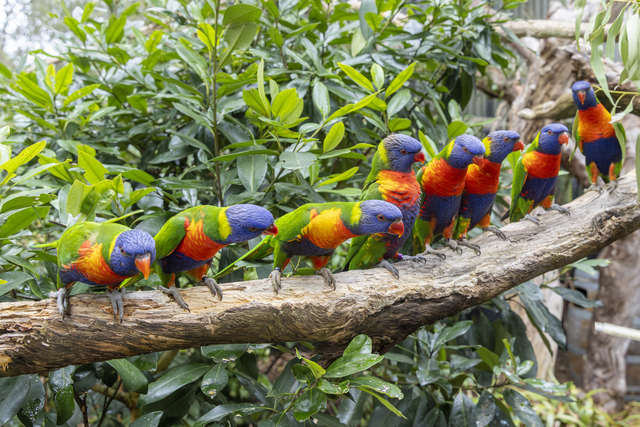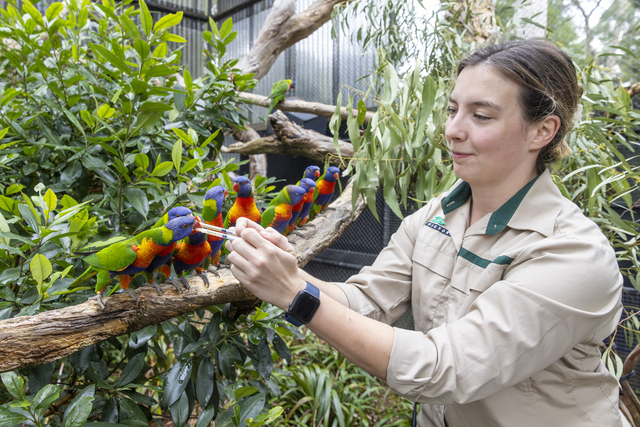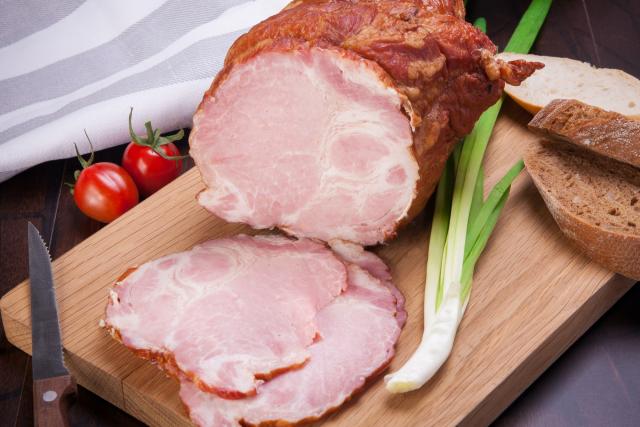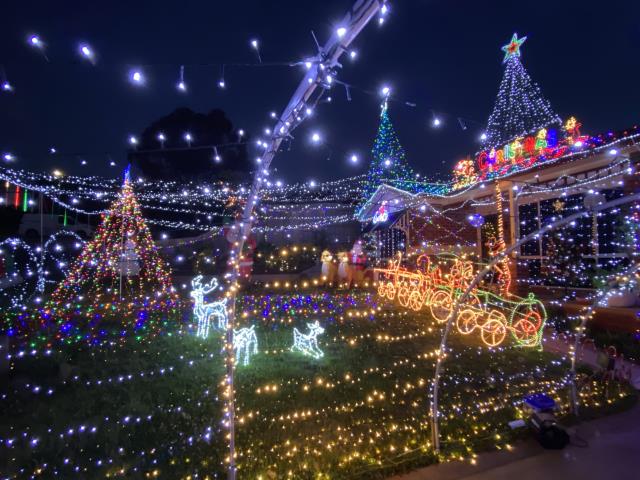A flock of fourteen fabulous Rainbow Lorikeets are lining up for their morning health checks at Healesville Sanctuary.
The bright native birds choose to participate in their own healthcare, including syringe training with nectar provided as a tasty treat.
Healesville Sanctuary bird keeper Sophie Anderson said the bachelor group in the Land of Parrots is incredibly social and love to engage in training sessions.
“We often start by building a relationship with a bird so that they trust us and are comfortable being close by,” she said.
“Then we teach them a stationing behaviour and slowly introduce the presence of a small medication syringe, first from a distance, gradually shortening that distance while pairing it with tasty treats.”
Such training allows for more hands-off healthcare and minimises stress that can be associated with having a check-up or routine procedure.
This proactive training also allows for medications to be provided to the birds that may need pain relief or worming.
“The Rainbow Lorikeets are quite food motivated, have a previous training history and are confident around people which is a great foundation to then be able to train a new behaviour. Consistency and patience are key,” Ms Anderson said.
The bird team have been developing this training for a couple of months and are now focussing on other species including Superb, Regent and Princess Parrots.
To support Rainbow Lorikeets and other bird species in the wild, plant flowering native shrubs like Banksia, Grevilleas and Bottlebrush in your garden.
Encourage your neighbours to plant native plants too as this will eventually provide a larger habitat for all our local species.
The Land of Parrots at Healesville Sanctuary is open from 10.30am until 3.15pm each day.
The Rainbow Lorikeets are most active between 11.30am and 12.30pm when they received their nectar feed.
If you don’t see them at first, you are guaranteed to hear them.
Nine varied species live in the Land of Parrots including Red-tailed Black Cockatoos, King Parrots, Rainbow Lorikeets, Scaly-breasted Lorikeets, Musk Lorikeets, Regent Parrots, Budgerigars, an Eclectus Parrot and a Pink Cockatoo.








